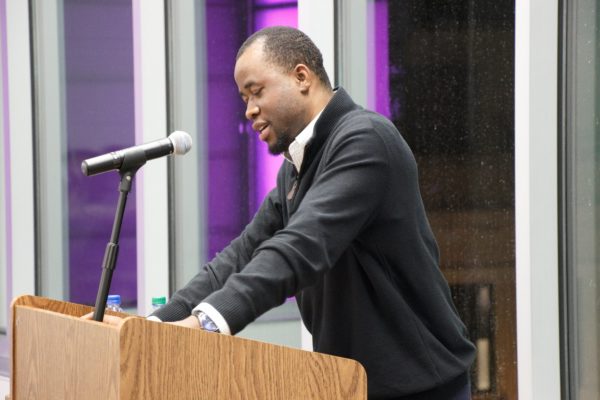
As part of the Wisconsin Book Festival, Chigozie Obioma was in Madison, Wisconsin, on February 6, 2019 to discuss his latest offering, An Orchestra of Minorities. The Wisconsin Book Festival is an annual celebration of literary creativity in Madison, Wisconsin. The festival hosts writers every year and draws people from neighboring Milwaukee, Minneapolis, Chicago, and Iowa. Well over a score of people braved a wintry Wisconsin evening to listen to Chigozie Obioma read from the new work.
The novel recounts the struggles of Chinonso, a young poultry farmer who falls in love with a woman he saves from jumping off a bridge. The story, refreshingly told through the voice of Chinonso’s chi, nicely sets up itself in conversation with Chinua Achebe’s Things Fall Apart, Homer’s Odyssey, and Ben Okri’s The Famished Road. Obioma weaves together a story of love, social class tension, fate, and the negotiations between humans and the cosmic force of destiny.
Obioma treats his audience to the first ten pages of the novel and fielded questions. Responding to how he came about the idea for his story, he submitted that it sprung from his musing on freewill as portrayed in John Milton’s Paradise Lost and Dante’s Inferno. His curiosity about the Igbo worldview of freewill led him to exploring the Igbo notion of radical duality—the idea that where one thing stands, another stands with it.
The gathering got even cozier. After the book reading, Obioma proceeded to another forum with a smaller group comprising UW-Madison professors, Tejumola Olaniyan, Ainehi Edoro, Samuel England, and a handful of graduate students. Here, Obioma proved to be a conversationalist. Describing himself as a maximalist, he addressed a controversy that has trailed him since The Guardian published a talk which he gave at a book festival in 2016. He had taken on the issue of the African writer’s disposition to their audience and had argued that the writer should go on to explain the world they describe as explicitly and evocatively as possible, if need be. In the course of the conversation, it became clear that the maximalist writer is not simply a writer who likes to explain things. For a maximalist writer, description isn’t so much about explanation as it is about exploring the aesthetic possibilities in making words visible in all their vivid and evocative presence.
The frosty wind had not subsided at the end of the session, but the burst of energy generated from the hearty interaction with the writer stood every participant in good stead.
Here are some of the pictures from the event.
All pictures by Kimathi Muthee.
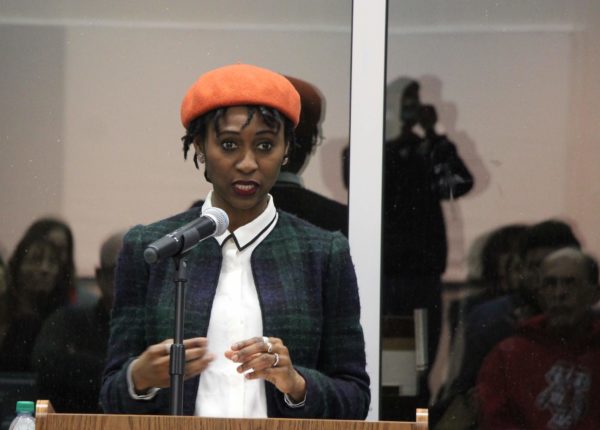
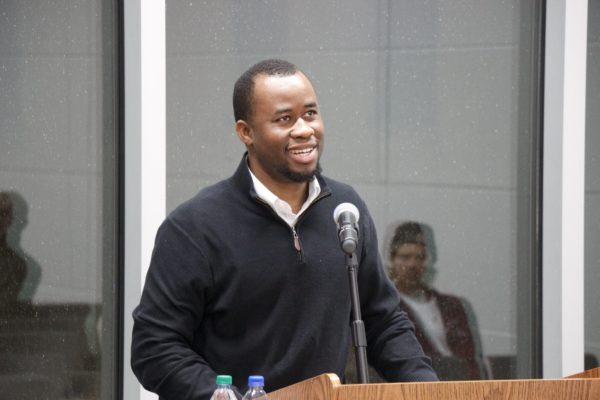
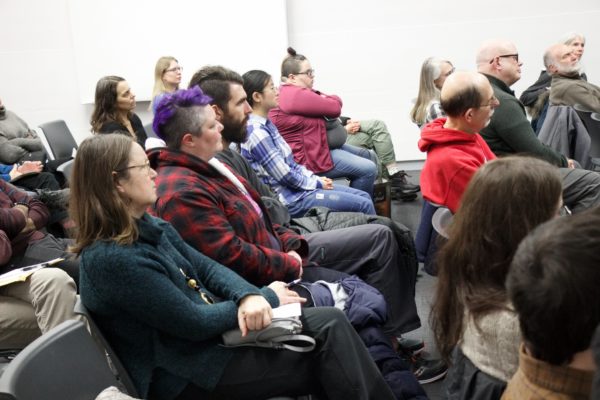
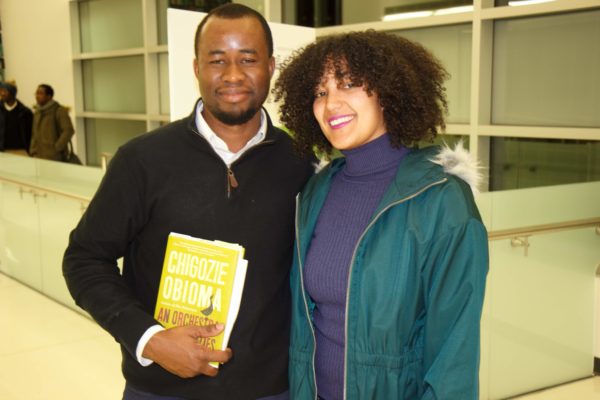
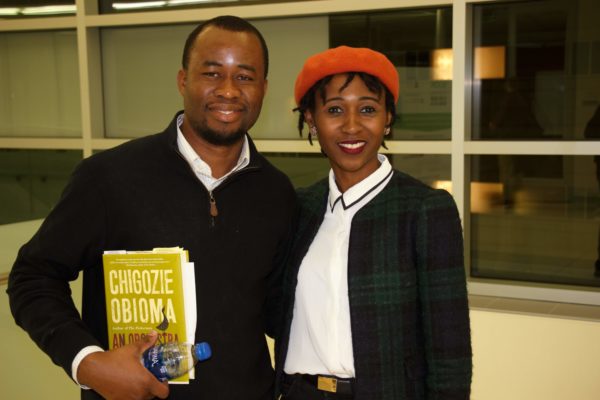
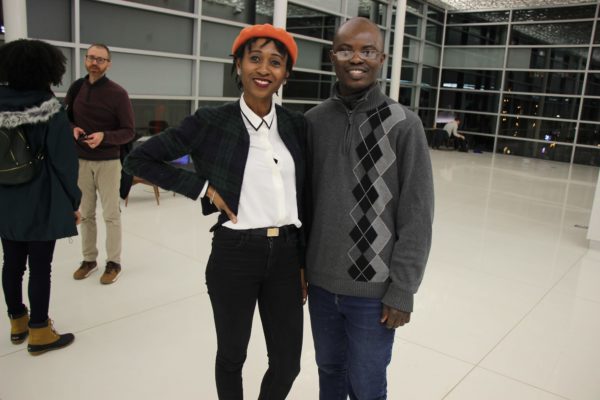
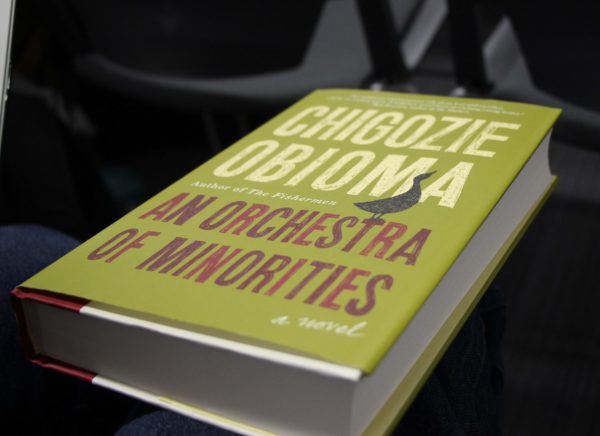
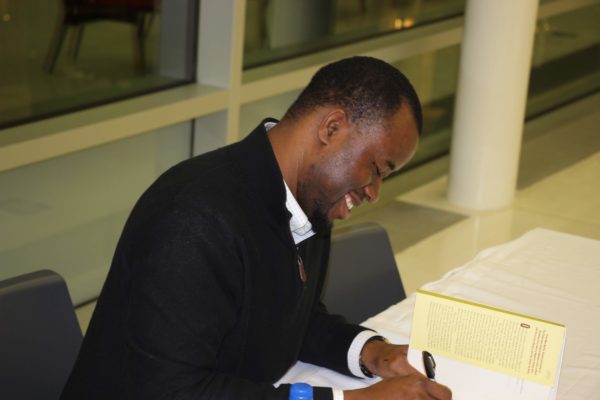








COMMENTS -
Reader Interactions